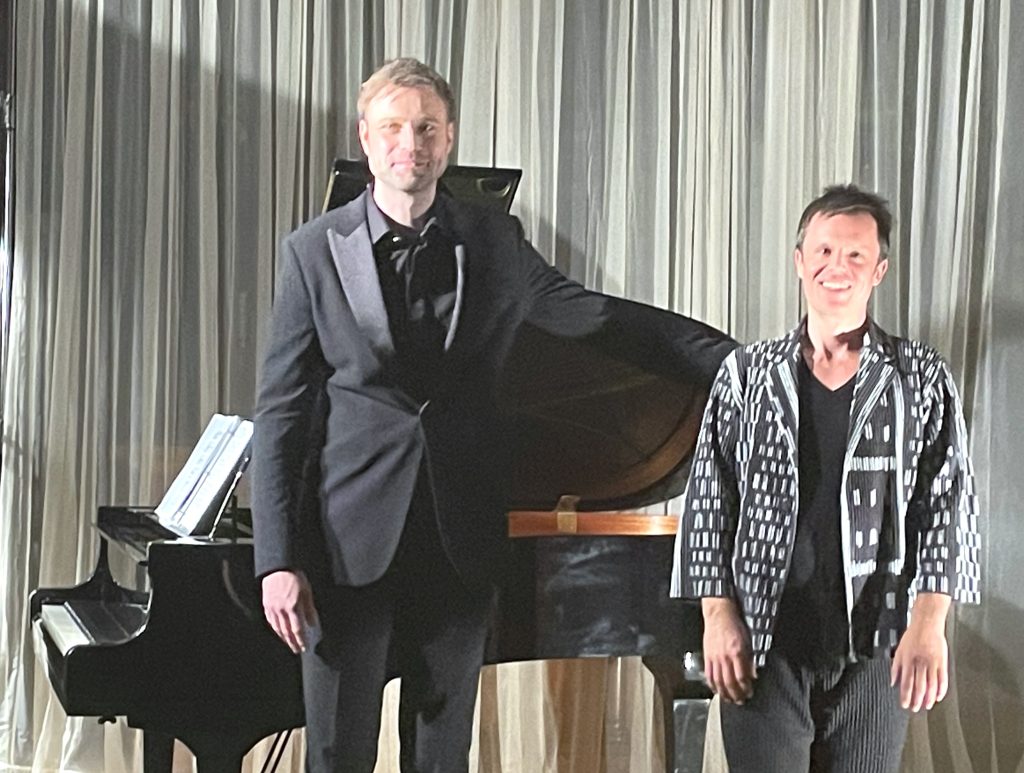
by Kevin T McEneaney
Last Friday evening at Grace Church Chapel the newly formed nonprofit Millbrook Music Salon under President Stephen Kaye hosted Baritone Benjamin Appl, accompanied by Bryan Wagorn on piano, for an evening performance of Franz Schubert’s Winterreise, (Winter-travel) Op. 89, D.911.
Winterreise (1827), a cycle of twenty-four short lyric poems by Wilhelm Müller (1794-1827) that Schubert (1797-1828) set to piano, remains one of the cultural mountaintop masterpieces of the Romantic period. This poetic cycle explores the darker, more realistic, and expressionistic side of Romanticism with the figure of the wanderer, possibly derived from the legend of the Wandering Jew or Charles Maturin’s Dublin masterpiece, Melmoth the Wanderer (2016).
The cycle has a carefully constructed architecture that enjoys deep introspection on the shadows of life, especially the theme of love as both emotional inclination and unattainable fantasy amid the short journey of life. A lonely man thinks he may be in love with a young girl yet doubts his ability to love as he wanders through a nighttime snowstorm while attempting to analyze his ambivalent fate in life.
Artistic Director Sophie Zhou amiably introduced Tenor Benjamin Appl (his 2021 recording of Winterreise with Alpha Classics has received rave reviews) and Canadian pianist Bryn Wagorn, who often performs at the Metropolitan Opera (and many other venues).
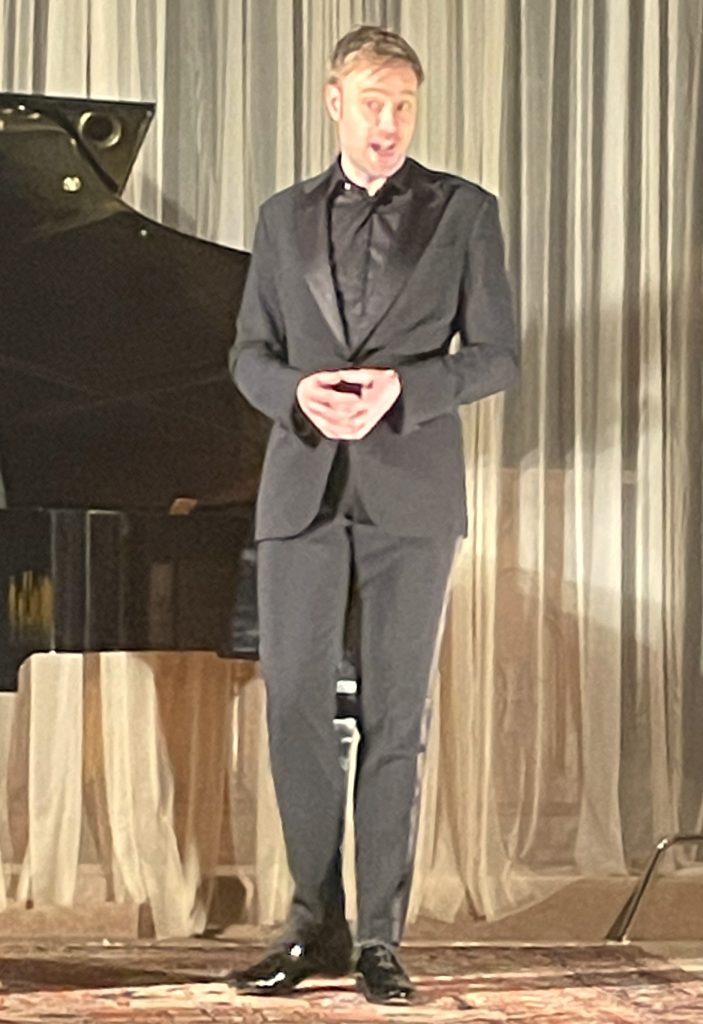
Appl was eloquent, nimble with voice textures, and dramatic in his rendition while Wagorn on piano enhanced Schubert’s Romantic inflection with apt drama. Appl projected a calm, entrancing, mesmeric, and poetic presence that was more impressive than I can describe.
In a short review, I cannot comment on every lyric of the sequence, yet I will comment on a few high peaks I found arresting. “The Weathervane,” the second song of the cycle, is a masterpiece of lyric and sound. The wanderer arrives at the house of a girl whom he might marry, yet he entertains doubt whether the girl loves him. The weathervane atop her house whistles and wanders in its direction amid the snowstorm. This implied phallic symbol exposes a fear of whether there would be sexual compatibility between the two (since their courtship has not gone that far). Might they be physically disappointed or might their sexual attraction exist for only a short period? The weathervane is fickle in the storm of life and the family’s wealth is above his class stature which might mean she may rule the marriage. He feels his heart is frozen, although he would like to make a gesture of love.
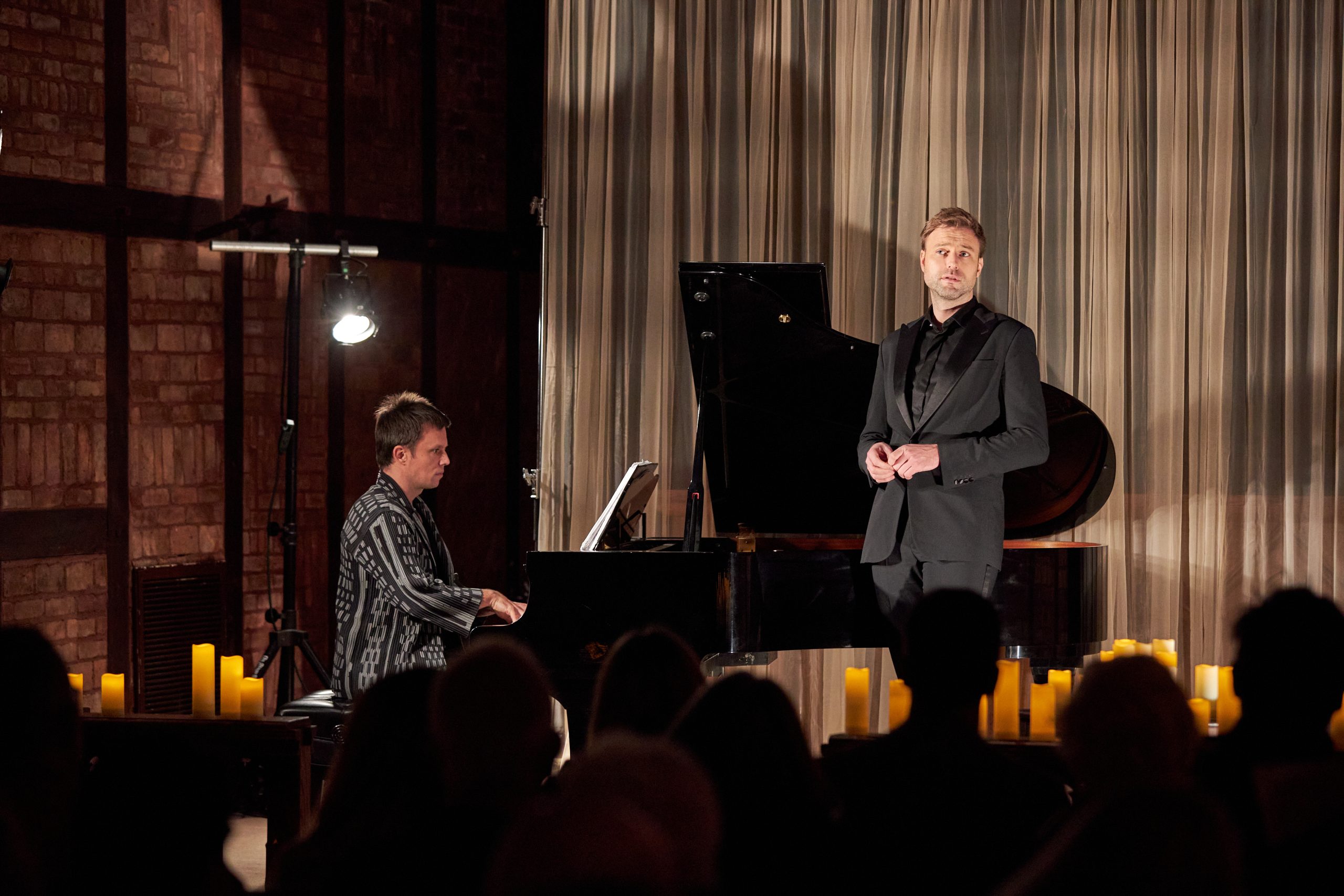
Photo by Gus Philippa
Like many great Romantic poems, Nature breathes as a reality greater than human consciousness. “The Linden Tree” on which the protagonist has carved many a loving word appears so turbulent in the storm that the wanderer becomes deeply disorientated by the rustling branches as his hat is blown from his head and he wanders aimlessly for hours in the snowstorm, unmoored from life. Here the chilling, gusting, winds of the piano rise to enhance confusion.
“The Crow” flits back and forth over the wanderer’s head. He wonders if the crow follows him, hoping to eat his corpse and offer a testimony to the certainty of the grave. This outlandish, ironic paranoia is terrifying. (In Celtic culture poets wore crow feathers, while judges wore raven feathers.)
He briefly finds a charcoal burner’s tiny hut and dreams of Spring yet moves on. The barking of dogs discourages him from entering the village. The wanderer is turned away at an Inn and his path leads to a graveyard. Here the piano rises with menacing chords. On the outskirts of the village near dawn, he hears an elderly hurdy-gurdy player misplaying disturbing notes in the frozen void as dogs bark at him. He wonders if he could accompany the player to sing sad songs lamenting the brevity of life.
The cycle concludes with disorientating and frightening ambiguity. The distorted sounds of the hurdy-gurdy replicate and echo the bleak, despairing echo of numb nature parallel to the protagonist’s despair. Appl’s posture, gestures, tonal variations, swelling, and diminishing volumes were masterful!
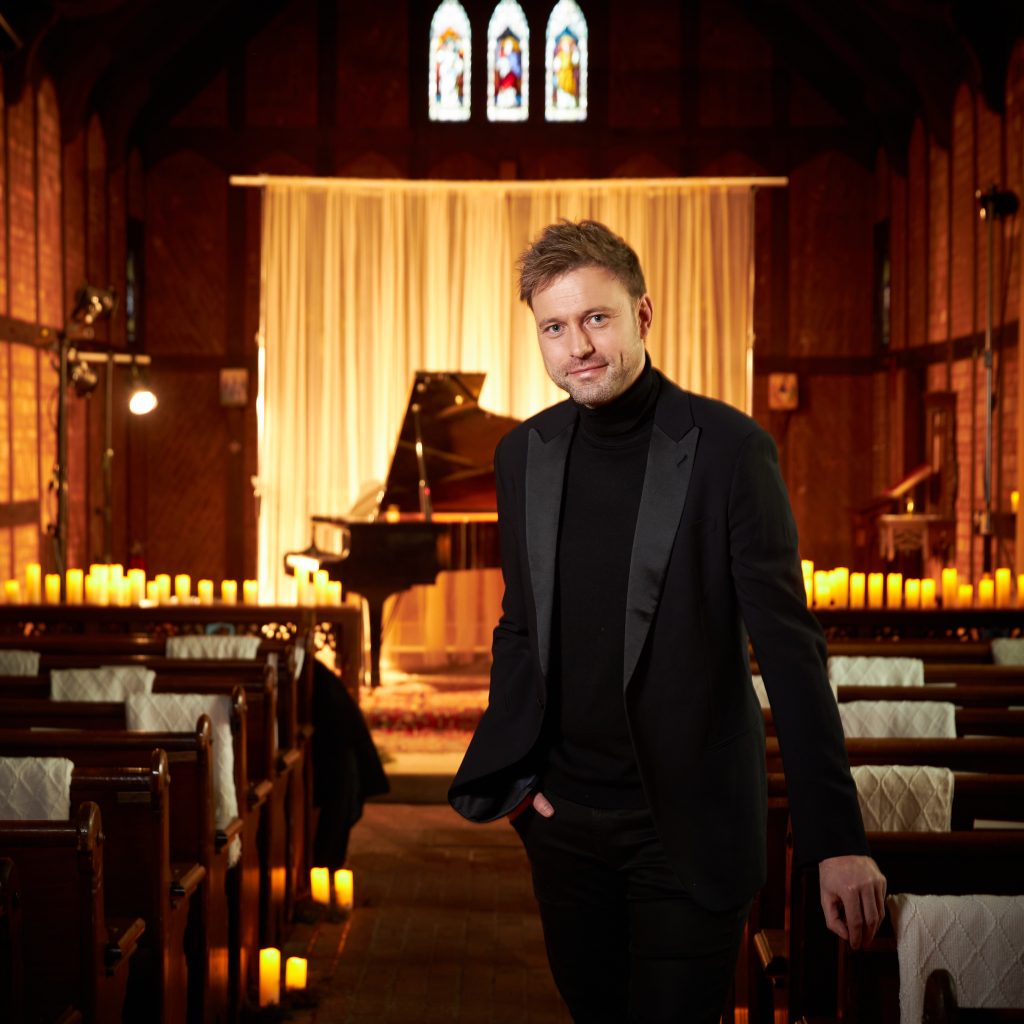
Photo by Gus Philippa
At a time when this country is descending into low culture and declining into the terror of stormy nights, Winterreise freights frightening parallels among those who treasure both culture and the American experiment in democracy.
The Millbrook Music Salon will continue to program resonant performances, and I look forward to future concerts in the delightful town of Millbrook.
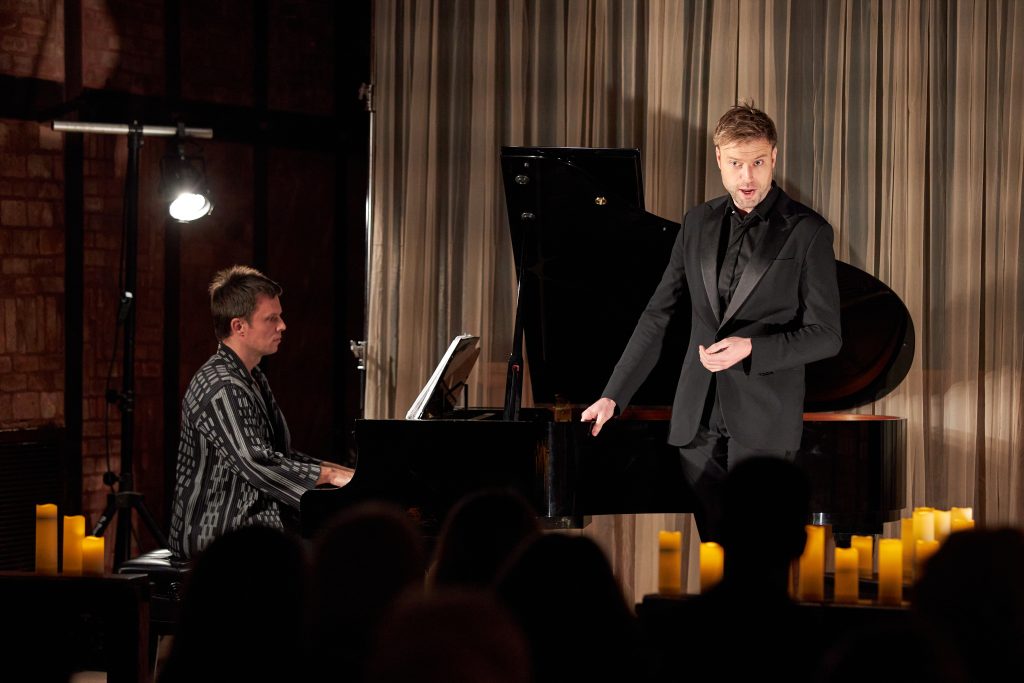
Photo by us Philippa